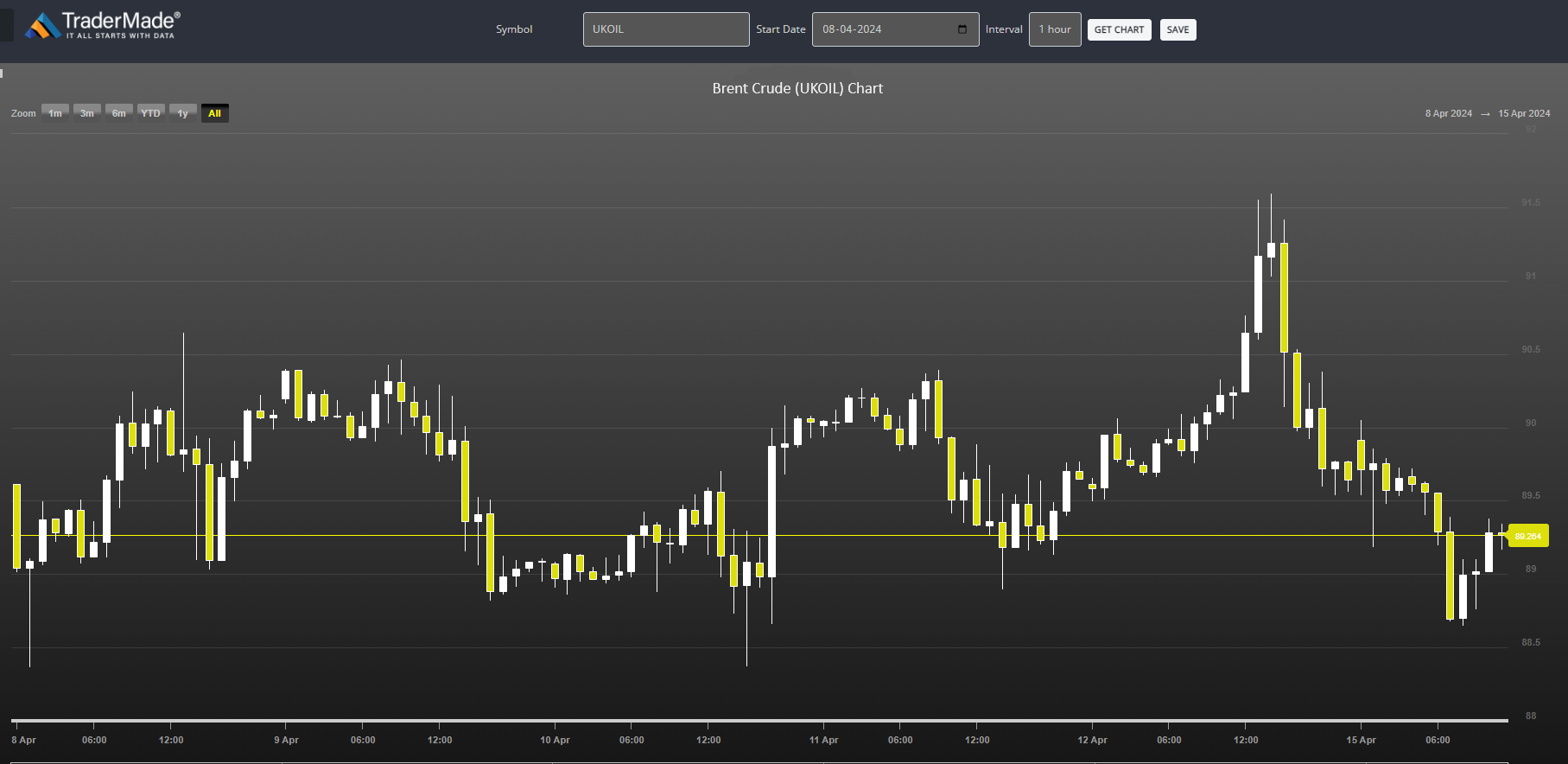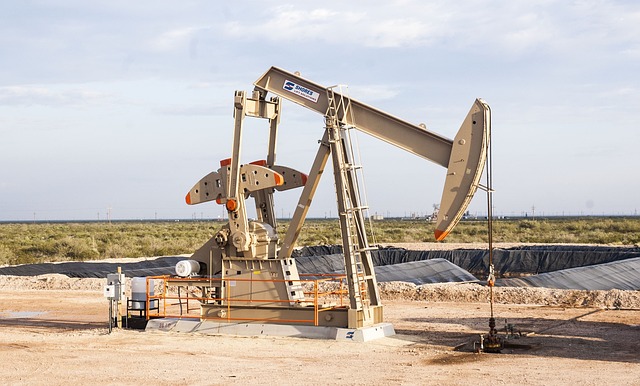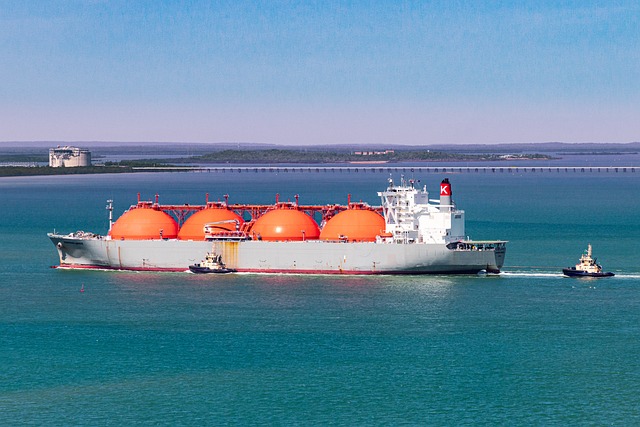
Black Gold Holds
London: 15 April 2024 (TraderMade): Crude oil prices started the week surprisingly calm despite Iran's attack on Israel at the weekend. This lack of a surge can be attributed to a confluence of factors that tempered the initial jitters.

Brent Crude (UKOIL) price plummeted 3.22% in the last 3-4 days, and it currently trades at $89.169 a barrel.
Priced-In Attack, Limited Damage, Hope for De-escalation
Market Anticipated Retaliation
Financial markets had largely anticipated Iran's retaliation for a suspected Israeli strike on its Syrian consulate. This preemptive pricing had already pushed oil prices higher in the days leading up to the attack.
Muted Impact of the Strike
Thankfully, Iran's attack caused minimal damage in Israel, with their missiles effectively countered by Israel's Iron Dome defense system. Additionally, the US's public refusal to participate in any further strikes against Iran offered a glimmer of hope for de-escalation in the region.
Cooling Demand Concerns Restrict Price Gains
Slower Global Fuel Consumption
Independent of the geopolitical situation, concerns about a slowdown in global fuel demand continue to weigh on oil prices. The International Energy Agency (IEA) recently revised its 2024 global oil demand growth forecast downward by 130,000 barrels per day (bpd), reflecting potential weakening economic activity.
Potential US Rate Hikes Add Uncertainty
It is believed that the US Federal Reserve may delay cutting interest rates due to persistent inflation, which could hamper economic growth and further dent fuel consumption. This uncertainty surrounding US monetary policy adds another layer of complexity to the oil price outlook.
Summary
While the Iran-Israel conflict initially raised the specter of oil supply disruptions, the muted market response suggests a wait-and-see approach. The focus has shifted towards factors influencing global demand, such as the IEA's downward revision and potential Federal Reserve actions.
The coming days will be crucial in determining if oil prices will resume their recent uptrend or succumb to the pressure of a cooling global economy and tighter monetary policy.



